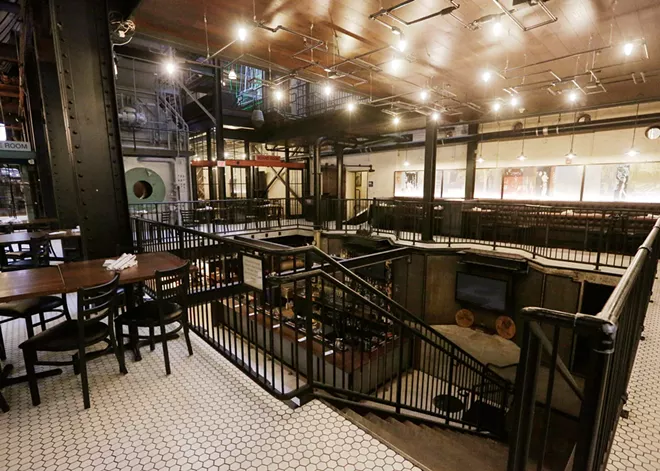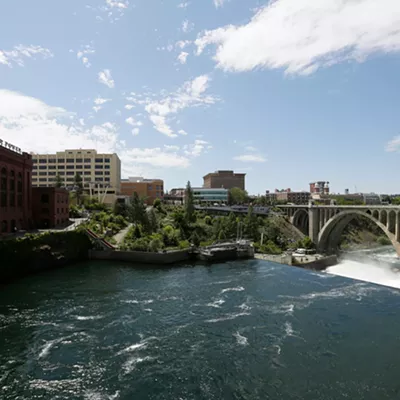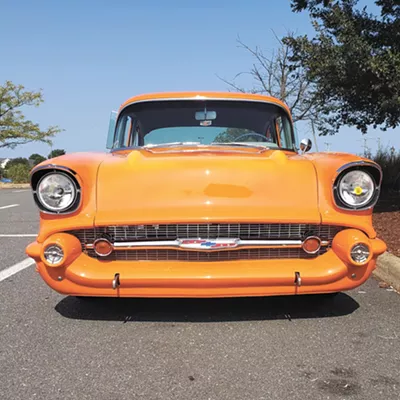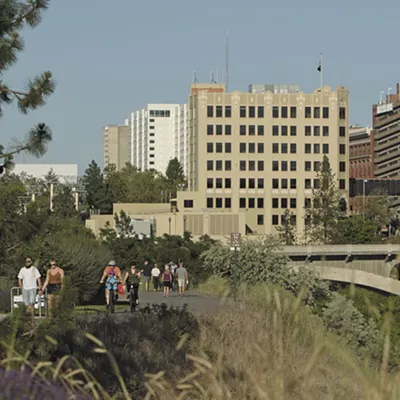
We've all been there. It's maybe 7:30, perhaps on a Thursday or Friday night, and you're looking for a place to grab a bite or maybe catch a coffee and get some work done. You browse option after option — closes at 8, closes at 6, too loud, stops serving food at 9, too much of a bar.
You find yourself stuck. It's too late for the vibe you're looking for, but it feels too early to stay in.
I'm not the only one to notice this. Across the country, late-night options have dwindled in the aftermath of the COVID-19 pandemic and the staffing shortages that followed. Even cities like Portland, San Francisco and Chicago, which had developed reputations for excellent evening café and dining culture, haven't rebounded to their peak. There are entire Reddit threads lamenting the loss of these non-bar "third places," which helped foster social connection and create community.
Lunarium is a fantastic example of a spot trying to bring this environment back. Located on North Monroe, the casual spot offers an expansive tea menu, coffee and scones until midnight Wednesday through Saturday, with hangout-style events and meetups open to all. Elsewhere, I've heard people discuss Bijou this way, and I've personally appreciated Pacific Pizza in Browne's Addition, which seems to be willing to let you hang out for a while, perhaps with a book or a board game.
But rebuilding a late-night food and beverage culture is going to take a lot more than just a place here and there — it's going to take some creativity from policymakers and entrepreneurs. Small-business owners are going to need to take some risks — and those who say they want these types of spaces are going to have to support them.

Small cafés in neighborhoods (some of which already exist!) might be one place to start. With clear guidelines, through zoning we could allow existing venues to stay open a bit later, and allow new venues more integrated with residential spaces — "accessory commercial units." These small commercial spaces would allow a resident to operate a little coffee shop or even a taproom more directly as a part of their home, significantly reducing costs. Small retail pockets like what you see at Pacific and Cannon in Browne's Addition could also be allowed across more of the city, and would be perfect candidates for a quiet, casual, "for the neighbors" sort of late-night experience.
It's tough to ask business owners to do more in a challenging cost environment, but restaurants and bars should experiment from time to time with their pricing, hours and "vibes" dials. Maybe a well-promoted late-night happy hour could help provide another turn of tables during the brighter spring and summer months. Maybe sacrificing Mondays altogether would allow later hours on weekends. Maybe something simple — like turning down the music and keeping the lights bright — would change perceptions about what type of environment is on offer.
Would-be late-night patrons can help, too. In some cases, it's as simple as proving to the small business that there's enough demand to stay open for another couple hours. So get a group together. Organize a book club, a board game group, an urbanism meetup — hell, just bring together some friends for drinks. Find a café/restaurant/bar/coffee shop you like, and ask if they could stay open after 8 pm for a group of 10 people, as long as everyone made a purchase. Make sure your meetup recurs weekly, and you may be surprised at how many small businesses would give it a try.
Reviving Spokane's late-night casual dining — and especially nonalcoholic beverage scene — will take time, and it requires experimentation.
But bringing people together, creating more places for people to gather outside the home, and fostering social bonds and connection is a worthy cause, and one I think we've too often neglected. I can't think of many better ways to start. ♦
Anthony Gill is an economic development professional and writer of Spokane Rising, an urbanist blog about ways to make our city a better place to live. Find him on Bluesky at @spokanerising.com




















